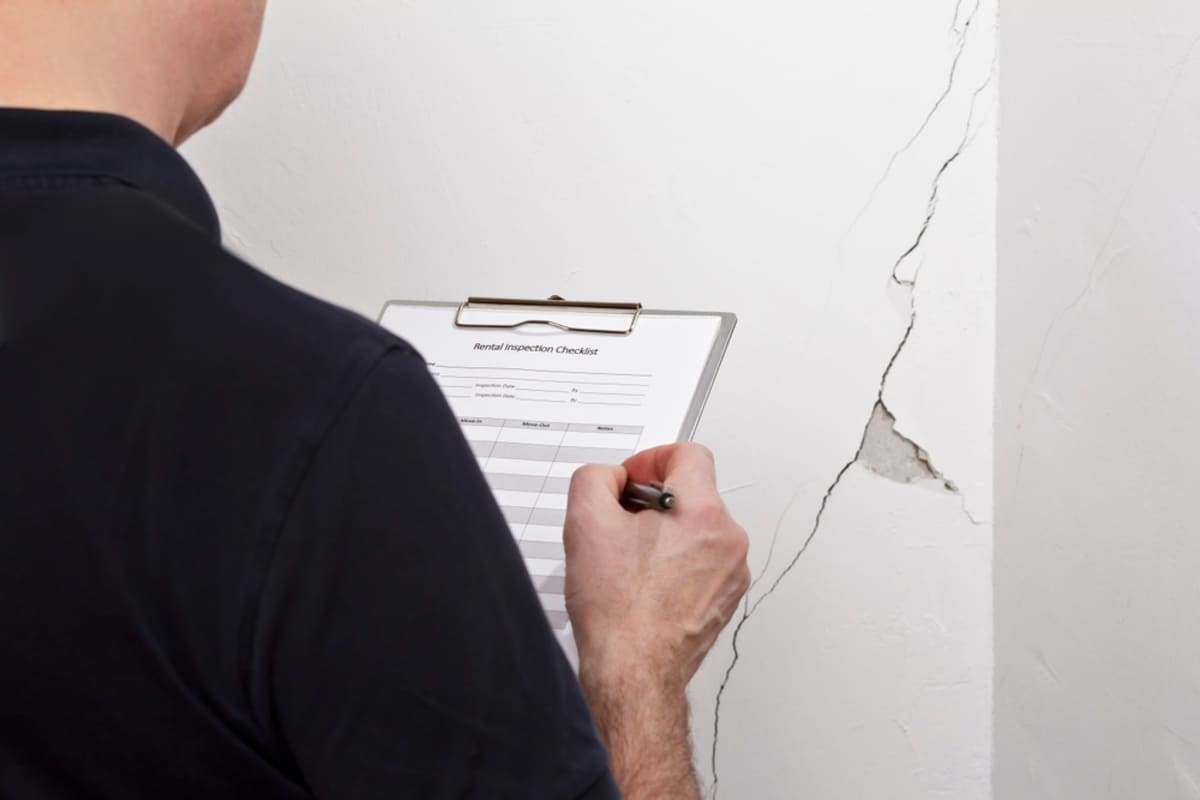Safeguarding your real estate investments through meticulous care is non-negotiable for a successful and profitable experience.
One essential aspect of this stewardship is conducting various property inspections. Routinely checking in on your property and its condition is crucial to ensure it stays in excellent condition and monitor how well your renters care for the home.
We've seen a lot through our experience managing rental properties and conducting inspections in the Philadelphia area! So, this blog will guide you through various property inspections: move-in, mid-lease, and move-out. We'll also discuss how our Rentwell Philadelphia property management experts can streamline your property management inspection procedures.
What is a Move-In Inspection?
Conducting a move-in inspection before a tenant starts a new lease term is crucial. This process involves thoroughly documenting the property's current condition before new renters move in.
When conducting this inspection, you'll examine walls, floors, appliances, and other features to set a baseline. You'll also document the condition of the rental unit and file it with the tenant's paperwork to reference later during the move-out inspection.
Why is it Important?
Why should property owners make the move-in inspection part of their routine best practices for every rental property?
First, the move-in inspection establishes a record that will be invaluable when comparing the state of the property at the end of the lease. It helps to resolve any disagreements over security deposits and potential damages.
Additionally, it sets a clear standard for the tenant, ensuring they know the quality of the property they must maintain throughout their lease.
 Understanding Mid-Lease Inspections and Their Necessity
Understanding Mid-Lease Inspections and Their Necessity
It's important to understand that the property may not stay in the initial "move-in" condition you saw during your move-in inspection after tenants move in. Remembering that "no news" is not "good news" regarding your property's condition is also crucial.
Therefore, just because tenants don't call with maintenance requests doesn't mean something hasn't gone wrong with a rental property.
That's why an experienced property management company like our team here at Rentwell recommends adding mid-lease inspections to your to-dos for every property in your portfolio.
Mid-lease inspections usually occur every six months and begin three months into the lease. These inspections serve multiple functions, including:
-
They enable you to catch maintenance issues early on, saving you from more costly repairs in the future. A leaking faucet today could be a major plumbing issue tomorrow if not addressed.
-
They offer the opportunity to verify lease compliance. Is the tenant maintaining the property as agreed? Are they making unauthorized changes? Regular inspections answer these questions and keep the tenancy running smoothly.
Conducting mid-year property reviews is also an excellent time to check in with renters. Schedule the inspection with plenty of notice and try to conduct it while tenants are home. This gives you an opportunity to ask questions about the property, talk with them about issues they need to resolve (like keeping up with taking out the trash or cleaning up after their pet in your pet-friendly properties), and ensure they are having a good experience in your property.
The Importance of a Move-Out Inspection
Owners should also conduct a rental property inspection when it's time for a tenant to move out at the end of the lease. The purpose is to compare the current condition with the initial move-in inspection (so bring that original inspection checklist with you to the move-out inspection).
This comparison allows you to evaluate potential damages that surpass normal wear and tear.
This step is crucial for determining how much of the security deposit you should return to the tenant. It's also your opportunity to document property damage or issues caused by the tenant to support why you'll hold back some or all of the security deposit to cover repair costs.
An experienced property manager can tell you that a well-executed move-out inspection protects you and your investment, avoiding legal complications related to security deposit disputes.
What Is Normal Wear and Tear vs. Tenant Damage?
Defining "normal wear and tear" is a crucial step during property inspections, whether for residential or commercial spaces. This term refers to the minor damages that are inevitable over a period of use, such as fading paint, worn-out carpeting, or slight scuff marks on the walls. Generally, tenants are not held responsible for such wear and tear, as it's considered a part of normal occupancy.
Understanding the nuances of what constitutes normal wear and tear versus actual damages is vital for ensuring that inspections are carried out in a fair and balanced manner. This distinction helps property managers or landlords make informed decisions about what to charge tenants for.
For example, if a window is shattered or there are large holes in the walls, these are considered damages beyond normal wear and tear. In such cases, the tenant is typically liable for the cost of repair or replacement.
By having a clear definition and understanding of normal wear and tear, both parties—tenants and landlords—can have a more transparent and enjoyable rental experience.
 How Rentwell Streamlines the Property Management Inspection Process
How Rentwell Streamlines the Property Management Inspection Process
Managing multiple rental property inspections can be demanding, especially across multiple rental properties—but it doesn't have to be with the aid of Philadelphia property management specialists like Rentwell.
We handle every aspect of each inspection, from organizing and conducting the inspections to tenant management. If we find any issues during an inspection, we also handle the repairs or work with tenants to correct an issue that violates the lease agreement.
With our expertise, maintaining your rental properties in top condition becomes hassle-free.
Optimize Property Inspections With Our Expert Property Management Services
Performing rental property inspections is not just a "to-do" but a vital tool for profitable rental properties and b better renter experiences. They help protect your investment while ensuring your rental properties remain in excellent shape.
If you've never conducted all of the inspections mentioned today for a property, it's time to get them on the schedule! To find out how Rentwell can assist you with your property inspections and other rental management requirements, don't hesitate to reach out to our team. Our experts know what to look for during each inspection to keep your properties and renters safe.








